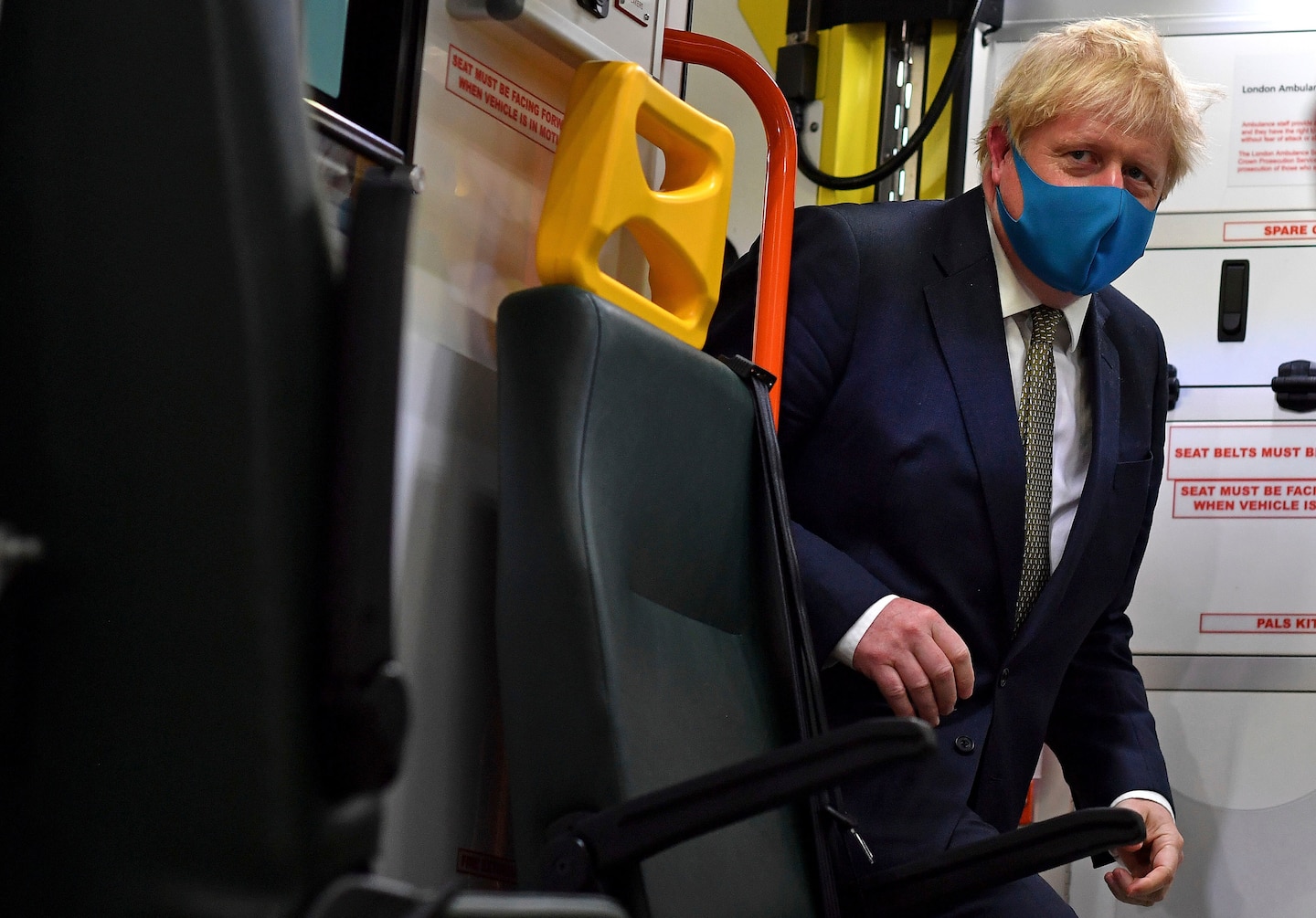Britain has the highest coronavirus death toll in Europe, but there is still reluctance to wear masks

That sort of no-maybe-yes messaging has been typical of the Johnson government’s pandemic response. Johnson and his ministers say they follow their science advisers and take each step as necessary. But critics say the waffling may have been especially unhelpful in the case of face coverings — which have been supported by numerous studies on controlling spread of the novel coronavirus.
The majority of Brits haven’t been inclined to take up mask wearing of their own initiative. The resistance is perhaps surprisingly high for a country with the highest death toll in Europe.
As a report produced by Imperial College London and YouGov polling put it: “Britons are uniquely reluctant to wear face masks, given the level of fear around covid-19 and the number of cases in the country.”
A widely shared video of mask-less, drunken British tourists cavorting in Mallorca, Spain, seemed to reinforce that reputation this past week. “Parts of Spain in lockdown, the elderly shut away in care homes, we all wear masks in the street, but in Magaluf the antisocial and irresponsible Brits do whatever they please. It’s shameful,” wrote one Twitter commenter in a typical response, referring to a town on the island of Mallorca.
Johnson was pictured wearing a mask in public for the first time Friday, when he donned a blue covering for a visit to a pub in Uxbridge, west of London.
The hashtags #NoMasks and #WearADamnMask were both trending on Twitter in Britain on Tuesday.
The latest data shows that 38 percent of Brits report wearing masks outside their homes, according to the covid-19 behavior tracker run by Imperial College and YouGov.
That’s compared with 73 percent in the United States, where resistance to face coverings has taken on partisan dimensions. President Trump wore a mask in public for the first time only last Saturday, during a visit to Walter Reed National Military Medical Center. Melania Trump, the first lady, reinforced the practice in a tweet Tuesday.
When researchers probed deeper, they found that only 28 percent of Brits who wore a mask said they felt better protected, compared with 38 percent of Americans.
Sarah P. Jones, one of the creators of the tracker, said factors that can influence mask wearing include health messages, role models and perceptions about the severity of the illness and personal susceptibility.
“It’s a very complex calculation that people make,” she said.
Complaints about face coverings in Britain are of the sort heard in other parts of the world new to masks: They are hot, make talking difficult and steam up glasses.
There’s also opposition, especially vocal within Johnson’s Conservative Party, to diktats from the government.
Writing before the Tuesday announcement, Tim Stanley, a historian and columnist for the Daily Telegraph newspaper, said face masks were “horrible and inhuman.” He said he hoped Johnson’s “libertarian instincts” would prevail.
Another headline in the Telegraph, which is closely aligned with the Conservative Party and where Johnson was a columnist, read: “Compulsory face masks are proof the British bulldog has become the scaredy-cat of Europe.”
On Tuesday, the Health Secretary Matt Hancock told Parliament that face coverings were important — not just for health but for the economy.
“We want to give people more confidence to shop safely and to enhance protection for those who work in shops,” he said.
Hancock noted that retail workers were up to 75 percent more likely to die from the virus than the general population.
After the announcement, Tory backbencher Desmond Swayne erupted in the chamber, “Nothing would make me less likely to go shopping than the thought of having to mask up!”
As of July 24, shoppers in Britain who don’t wear a mask can be fined.
Hancock said exemptions will be made for children under the age of 11 and those with “certain disabilities.”
Why 10 days from now and not tomorrow? The government didn’t say.
“We can’t afford to wait another day,” London Mayor Sadiq Khan told the BBC. “Further delay risks lives.”
How to enforce the new rules remains controversial. The police said shopkeepers need to take some of the responsibility and suggested they put up signs on their doors asking shoppers to mask up before entering.
“If a shopkeeper calls the police because someone hasn’t got a mask on, they haven’t got the power to detain them, so that person can just walk away,” Ken Marsh, chairman of the Metropolitan Police Federation, told the BBC. “We’ll be driving around and around London looking for people who aren’t wearing masks. It’s absolutely absurd.”
In mid-June, the government made wearing face coverings on public transport mandatory. Most but not all obliged — 18,000 people have been given warnings. But only eight people have actually been fined.
Ben Voyer, a behavioral scientist at the London School of Economics, who has been studying British health messaging during the pandemic, said he was pleased to see wearing masks in shops would become mandatory.
“Because masks are uncomfortable and unnatural — and go against our very social natures — the rules need to be clear and compulsory,” he said. Or else few people will adopt the practice, he said.
Some have suggested that enlisting well-known spokespeople could help the cause.
Robert West, a professor of health psychology and member of the government’s behavioral science advisory group, told the Times of London that officials should turn to popular figures to encourage mask wearing.
“David Attenborough and the Queen, that’s who they want,” he said. “I’m surprised how little use has been made of role models.”






